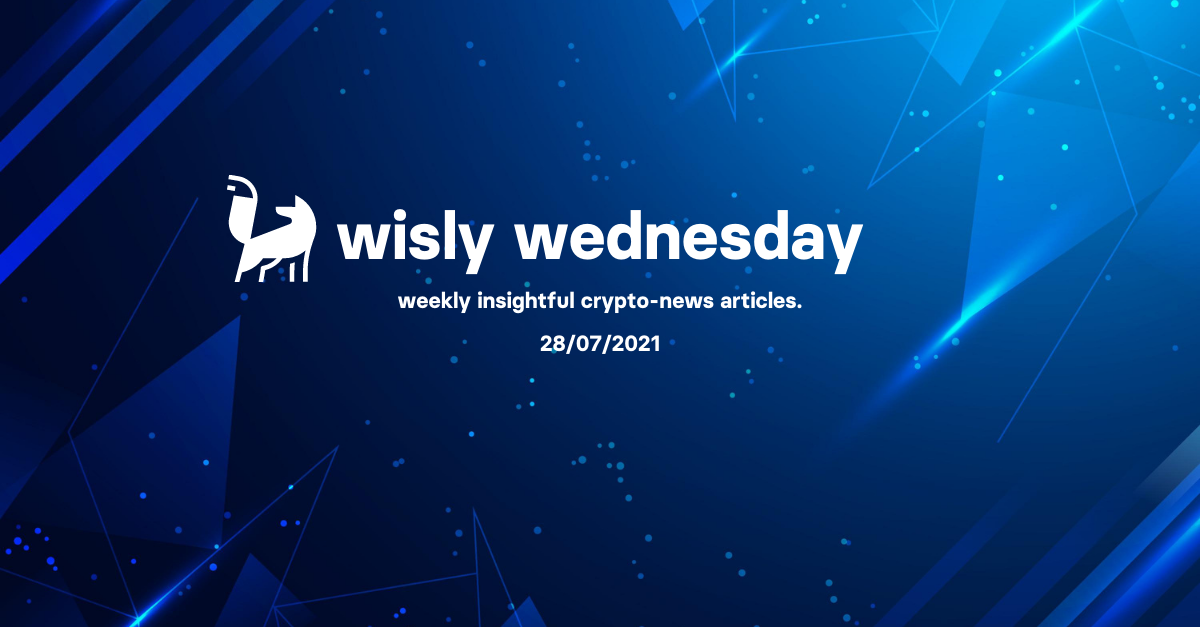It’s been another whirlwind week in the crypto industry with some fascinating developments making for interesting conversations in crypto circles. Bitcoin slides as Amazon denies crypto payment plans; World famous museum to tokenize Da Vinci and Van Gogh paintings; South Korea threatens to shut down foreign exchanges; and Iran concerned over Chinese crypto miners’ illegal entry.
Amazon denies Bitcoin payment plans

Representatives at Amazon have officially denied rumours of its intention to accept Bitcoin as a payment option. The rumour of Amazon accepting crypto payments filtered through earlier this week causing an opportunistic rush in the market.
According to a report from London-based City A.M, an Amazon insider had leaked information that the global e-commerce conglomerate was planning to accept Bitcoin payments before the end of the year and would look at supporting other cryptocurrencies. The insider further added that Amazon had been planning on integrating cryptocurrencies since 2019 and the project was almost ready to roll out.
The news triggered a flurry of activity as Bitcoin jumped 14.5% to reach close to $40,000. The joy was short-lived, however, as the company sought to clarify their stance on crypto payments. A spokesperson for Amazon said, “Notwithstanding our interest in the space, the speculation that has ensued around our specific plans for cryptocurrencies is not true. We remain focused on exploring what this could look like for customers shopping on Amazon.” The price of Bitcoin has since slipped and is currently sitting around $37,300 at the time of writing.
World famous museum to tokenize Da Vinci and Van Gogh paintings

World famous Russian museum, the Hermitage, based in Saint Petersberg has teamed up with Binance NFT marketplace to issue tokenized collectibles that depict the works of Vincent van Gogh and Leonardo da Vinci, amongst others. The news was revealed on Tuesday by Binance who stated that they were partnering with the world famous museum to create and issue the NFTs by the end of August this year.
The masterpieces will be tokenized for auction through Binance’s NFT marketplace and will be open to all Binance users. It is believed that the auction will kick off with the launch of limited edition NFT copies of Da Vinci’s Madonna Litta, van Gogh’s Lilac Bush, Claude Monet’s Corner of the Garden at Montgeron, and Giorgione’s Judith.
For each of these masterpieces, there will be two NFT copies created. One of the copies will be stored at the museum while the other will be auctioned at Binance’s NFT marketplace. Binance described this offering as a new level of accessibility to the Hermitage’s collection and highlighted the importance of this project towards collecting artworks through digital assets. The tokenised copies will be displayed at the hermitage’s upcoming NFT art exhibition and all proceeds from the sale will go to the Hermitage Museum.
South Korea threatens to shut down foreign exchanges

South Korea has continued to clamp down on cryptocurrency activities in the country and have issued a warning to foreign digital currency exchanges operating within its borders. State officials want all foreign exchanges to register within the next two months or face being shut down. Financial market regulators in South Korea further warned that failure to do so will incur hefty fines together with a five-year jail sentence.
The Financial Services Commission (FSC) in the country wants to regulate all foreign digital currency exchanges in accordance with the Specific Financial Information Act and has given these exchanges up to 24 September 2021 to register. The financial market regulator has also planned to block the websites of those exchanges who have not registered by the deadline.
All South Koreans must ensure that the exchanges that they trade on are fully compliant with the laws of the country. Trading on exchanges that are not registered by 24 September 2021 will be considered illegal. The registration requirements for foreign exchanges are applicable to all exchanges that offer products and services to South Koreans, irrespective if they have offices within its borders or not.
Iran concerned over Chinese crypto miners’ illegal entry
With the recent crackdown of crypto mining activities in China, many crypto miners have been seeking greener pastures to continue with their acquisition of digital assets. While there is no evidence of any illegal crypto miners entering the country from China, Iranian officials have expressed concern that China’s crackdown could force miners to operate in Iran due to its favourable crypto mining conditions.
Iran Power Generation, Distribution and Transmission Company (TAVANIR) has been the most vocal about their concern and have informed the Central Taskforce to Combat Smuggling of Goods and Foreign Currency of a possible influx of crypto miners from China. TAVANIR’s CEO, Mohammad Hussein Motevallizadeh, stated, “Lower electricity costs make Iran attractive to Chinese miners. They are likely to start smuggling mining equipment into the country.”
Iran is currently suffering from electricity shortages and rolling blackouts due to crypto mining activities that have severely strained their energy network. Officials recently seized over 200,000 pieces of crypto mining equipment that consumed 750 megawatts from the grid, and the country is now getting tough with crypto miners who officials describe as lawless and avaricious.




